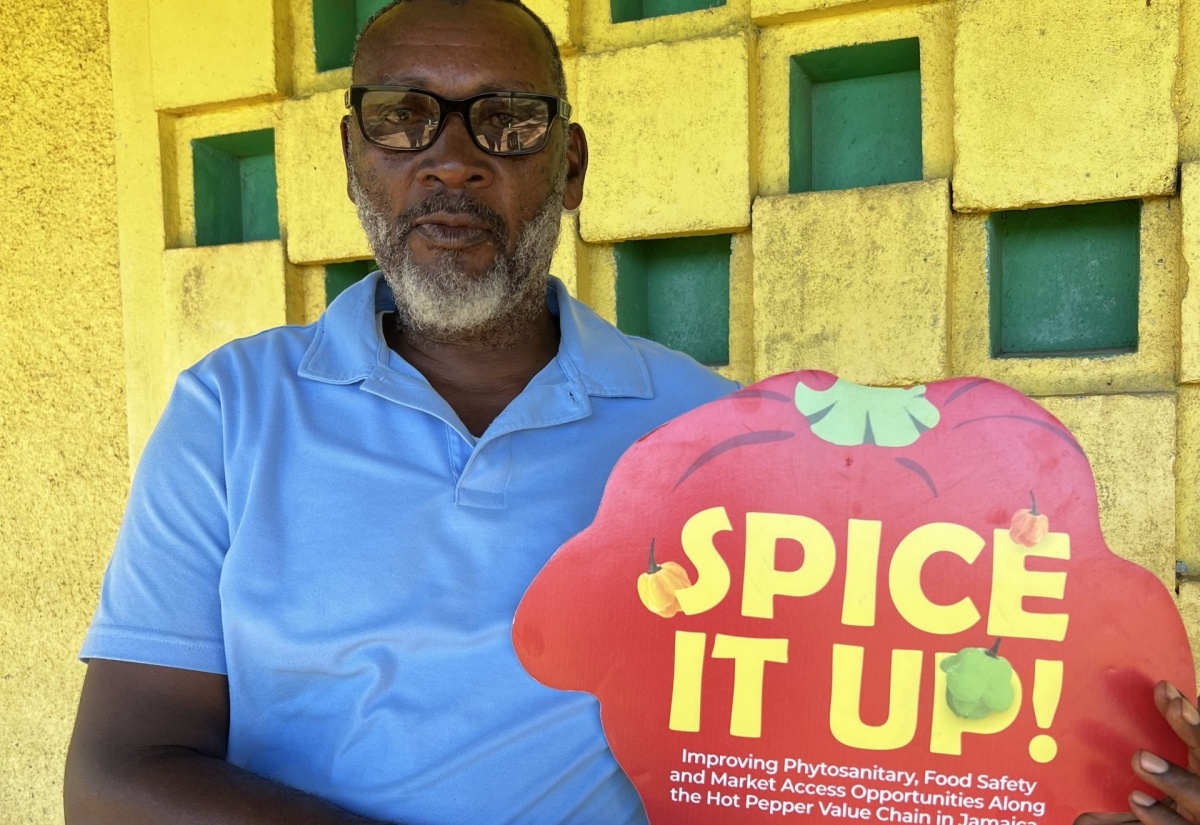Hot Pepper Farmers Hail Pest Surveillance Training
By: , February 27, 2024The Full Story
Hot pepper farmers and other stakeholders who took part in pest surveillance training are hailing the sessions as useful and beneficial to their farming practices.
A total of 169 farmers, input suppliers and nursery operators benefited from guidance to reduce the prevalence of pests in hot pepper cultivation under the Improving the Phytosanitary Food Safety and Market Access Opportunities along the Hot Pepper Value Chain Project being implemented by the United Nations Food and Agriculture Organization (FAO).
The training series, which ran from February 6 to 21, included sessions across five parishes – St. Elizabeth, St. Mary, Clarendon, St. Ann and St. Catherine – as well as one virtual engagement.
Hot pepper farmer from Walkerswood, St. Ann, Sobers Gordon, said he learned valuable skills that he can apply to his farm.
“Through the training, we got a chance to understand how to spray the hot peppers. We learned how to use different sprays to control the thrips, mites, white fly and cutting caterpillars. We also learned that you have to catch these pests early or else they’ll spread to the whole field. If that happens, it will be harder to control them. So, I learned a lot… and the more you learn, the more you improve in your farming,” he said.
President of the Walkerswood Farmers Group, Oral Salve, said that as a farmer, he understands the value of training and is urging others to take advantage of the support.
“Every day, new chemicals, ideas and technology come along, so the more training you get the more it enhances your practices in the farming world. The advantage is also that you get to learn about the different types of chemicals, especially since manufacturers are always introducing new ones to the market to be used on different types of pests in the field,” he noted.
A crucial part of the training experience was on seed certification and featured classroom sessions as well as field exercises on pest identification, surveillance and management.
The series of training sessions has also enabled local producers to engage with the inspection and regulatory bodies involved in sanitary and phytosanitary management, input suppliers, seed certification officers and extension delivery.
The Improving the Phytosanitary Food Safety and Market Access Opportunities along the Hot Pepper Value Chain project is funded by the Standards and Trade Development Facility and implemented by the FAO.
It involves close collaboration with the Bureau of Standards Jamaica and the Ministry of Agriculture, Fisheries and Mining through the Rural Agricultural Development Authority (RADA) and the Plant Quarantine and Produce Inspection Branch, as well as local input suppliers.


